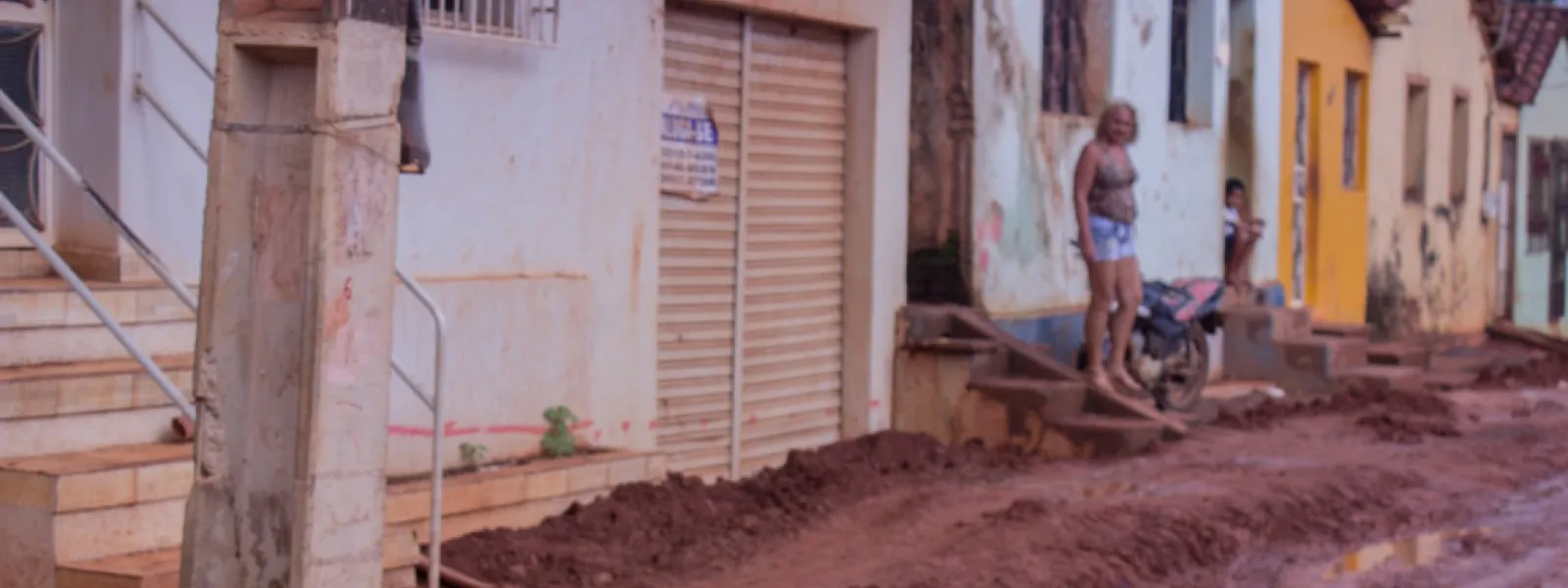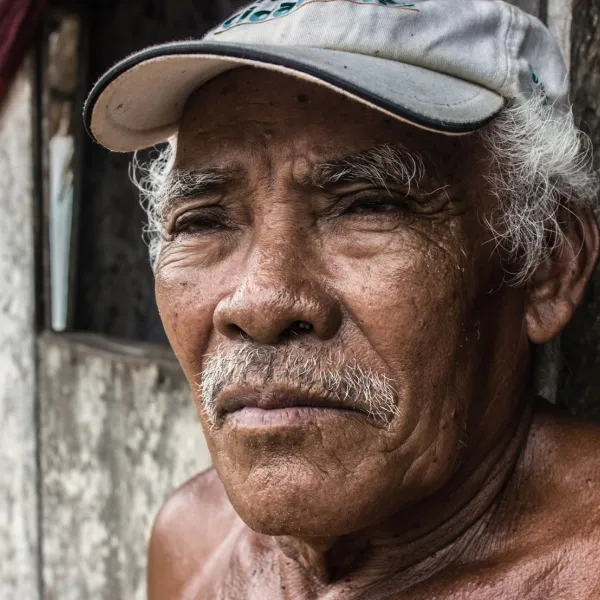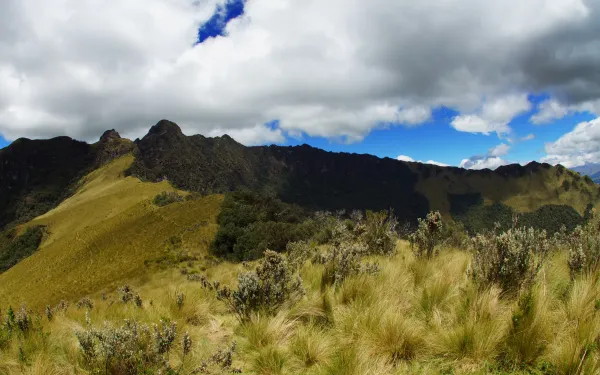
Project
Photo: Maíra Irigaray / Amazon WatchHolding Brazil accountable for the Belo Monte Dam
When fully operational, Belo Monte will be the third-largest dam in the world, constructed in one of the most important ecosystems on the planet: the Amazon rainforest. It sits on the Xingu River in Pará, a state in northern Brazil. The reservoir will cover 500 square kilometers of forest and farmland—an area the size of Chicago.
For the people of the Xingu, construction of Belo Monte has meant loss of access to water, food, housing, work and transportation. At least 20,000 people have been displaced.
The government and construction consortium began to construct the dam without first consulting the people of the region, many of whom are indigenous. They flouted international human rights law, which requires the free, prior and informed consent of affected indigenous communities. Brazil also failed to comply with precautionary measures issued by the Inter-American Human Rights Commission, which were intended to protect the life, health, and integrity of local communities.
Though Belo Monte began operations in May 2016, it is not yet operating at full capacity. In April 2016, a federal court suspended the dam's operating license because the consortium in charge did not complete basic sanitation works in Altamira, the city nearest to and most affected by the dam.
Partners:

Related projects
The UPOV Convention and the privatization of seeds: What’s at stake?
By Florencia Ortúzar, legal advisor, AIDA "Modern agriculture is not a system for producing food but for producing money"(Bill Mollison: Australian researcher, scientist, teacher, naturalist and the father of permaculture). Seeds are the beginning of life itself. They are the means of nature’s propagation and the building blocks of life. Patenting seeds hands their ownership rights to a select few, and this causes great resentment among many. What does all of this really mean? The UPOV: An international convention The International Union for the Protection of New Varieties of Plants (UPOV) is an intergovernmental organization whose objective is to grant intellectual property rights to “breeders.” That is, to people who have created or discovered new varieties of seeds. Some countries in the Americas have signed the UPOV Convention, which was established in Paris in 1961 and revised three times (the latest in 1991), and others are considering it. A seed needs to be considered a new variety in order to be patented. New varieties can be generated through the use of traditional techniques or genetic modification in laboratories. It is difficult to measure the possible ramifications of something so new and novel as the privatization of the life contained in a seed and, for good reason, many people are worried. The situation in Chile (and other countries): To join or not to join? Chile’s Congress is currently debating legislation known as the “Monsanto law” that, if passed, would implement the UPOV Convention and the ability to patent new seed varieties. This means that someone could alter the genetics of a native seed to become its inventor and owner. This would give them the right to sell it, charge a fee every time the seed is used, prohibit its trade in the market and draw up a contract dictating what farmers can and can’t do with the harvested product (for more information, you can listen to the interview (in Spanish) with the co-founder of the NGO Chile sin Transgénicos (Chile without Transgenics)). Proponents of the law argue that it is a necessary protection to encourage innovation in the country's agriculture sector. Concerns Making native seeds obsolete: What chance does a native seed have for survival competing against a seed that is genetically modified to be more productive and efficient? According to market rules, the “new” cultivated seeds will displace the native ones. Even worse, GM crops could easily contaminate the remaining natural varieties. Monopolies: Those with the resources to create new seeds, especially genetically modified ones, which are the most profitable, are typically the huge corporations that today dominate the production of GM foods, like Monsanto. If the seed patent system were authorized in Chile, these companies would get a free pass to take control of the country’s cropland as they have already done with great efficacy in Argentina. What is more, the most profitable companies would gain access to the country’s most arable land, expanding monoculture practices while also forcing less profitable seeds out of the market even if they are more nutritional. Seed exchange: The “Monsanto law” grants great power to the seed owner by binding the seed purchaser to a contract that controls the entire harvest and the new seeds that are generated. Traditional practices such as the propagation, sale, gift giving and exchange of seeds, customs as old as agriculture itself, would be prohibited. The law would strip farmers not only of an essential part of their job but also a key source of income: the sale of cultivated seeds. As a consequence, the farmer would lose power and identity and become a mere cog in the corporate machine. Genetically modified crops: To the benefit of big companies, we inevitably favor the entry of genetically modified foods, the products with the greatest economic return. While the adverse side effects of eating GM food are not yet officially known, it seems wise to err on the side of the precautionary principle and avoid uncontrolled testing on humans. The advent of this law would protect GM crops. Natural products, which are less economical but generally more nutritional, would be overtaken by more productive seeds. There are many reasons to treat GM foods with caution. Rather than helping to end world hunger, we have increased the use of pesticides, destroyed biopersity, caused inequality between farmers and contaminated native varieties of seeds. It also is dangerous for people’s health to live near GM crops, as has been proven in Argentina. Environmental impacts: By allowing seed monopolization, crops will become homogenized to achieve the most economic harvests. This will lead to monocultures, many of them pesticide-resistant seeds that will require the use of alarming amounts of agrochemicals. Of particular concern, a lack of persity means crops become less resilient and adaptable to environmental changes, including those associated with global warming (You can read here (in Spanish) an article about the problems Argentina is experiencing with the expansion of GM soy monoculture). Unforeseeable risks: If a country drastically changes its agricultural system, the risks are difficult to predict. It is possible that a company could incite a plague that would force desperate farmers its new seed that is resistant to the plague. Another risk is that farmers could be unfairly penalized for using patented seeds, especially if farmers have not been properly educated about the new legislation. Could farmers face lawsuits, convictions and the burning and seizure of their crops? Conclusion The implementation of the UPOV Convention threatens to drastically change an essential part of the natural cycle. The most dangerous aspect is that the global initiative is attracting more followers. It does not seem fair that a person can pay a fee for a seed that should never really be the creation of a person. Although the “breeder” could have changed a gene, it should not give him the right to copyright and control the rest of the seed’s genetic information. In Europe, only two countries have permitted the entry of GM crops. Chile has enormous potential to produce organic crops, and it could position itself successfully in the European market. But the Chilean authorities haven’t considered this as a possibility. The approval of the patent law on new seeds favors multinational seed monopolies, and this would allow the entry of GM crops that would displace and contaminate original varieties without the possibility of turning back. On the contrary, Peru recently passed a law banning the import and production of GM crops for 10 years. This is a good example to follow.
Read more
Declaration of Civil Society Organizations that Participated in the First Regional Forum on Business and Human Rights in Latin America and the Caribbean
The organizations signing the declaration regret that " the Forum was far from a plural confluence of diverse actors. In the seven panels that made up the two days of the event, 47 people participated, of which only 10% came from communities affected by business activities or human rights NGOs that work with such communities." Therefore, organizations "respectfully but emphatically call on the Working Group, the Human Rights Council, and the international community to correct the aforementioned problems and guarantee the adequate participation of civil society and groups of affected peoples, both in form as well as content, in the Second Global Forum on Business and Human Rights, which will take place in Geneva on December 2-4, 2013".
Read more
Virtual water: What we do not see
By Haydée Rodríguez, legal advisor, AIDA We live in an era of virtual creations. We have virtual reality, universities and conferences and even virtual pets. It’s no surprise then that the term “virtual water” is used more and more. But what does it mean and what’s it got to do with our everyday lives? Virtual water is defined as the quantity of water needed to create a certain product. This estimate takes into account the volume of water consumed and contaminated in the different stages of the manufaccturing process. The United Nations estimates our daily water requirement is 2 to 4 liters per person. But it takes 2,000 to 5,000 liters to make the food that one person needs every day. The Virtual Water Project has made estimates of the virtual water needed to make many of the products we consume daily. You can even download an application to do the calculations on your mobile phone. Here are a few numbers that caught my attention: 15,000 liters of water are needed to produce 1 kg of meat. 8,000 liters of water are needed for a pair of jeans. 1,000 liters of water are needed for 1 liter of milk. 2,500 liters of water are needed for 500 g of cheese. 25 liters of water are needed for 1 potato. 3,600 liters of water for 1 kg of rice. 109 liters of water for 1 glass of wine (125 ml). Our water footprint The virtual water calculation allows us to measure our water footprint as well. The water footprint of an inpidual, business or country is the sum total of the virtual water used in making every product and service. On a per-country basis, the calculation includes the water used for domestic and industrial purposes as well as the water used in foreign countries to produce the goods and services imported and consumed by the country's inhabitants. The map above shows the water footprint by country on a world scale (you can check out the data of every country here). It is interesting to note that developed countries like Canada that have a high level of manufacturing and imports also have a very high water footprint. Even so, according to the United Nations water availability map, not all the countries listed suffer water shortages. In general, this is becuase many products requiring high levels of water are imported and not manufactured locally, thus generating greater pressure in countries suffering from water stress: high water demand with low availability due to shortage or pollution. You can also calculate the water footprint of inpiduals taking into account social characteristics and consumption patterns. If you want to calculate yours, you can enter your data on this link. Virtual water, real action Being aware of the concepts of virtual water and water footprint is important for promoting the need for more information and transparency regarding what we consume. That makes it possible for us to change our habits and choose more sustainable products with low virtual water content. We can always ask ourselves what's behind the scenes for the pair of jeans we want to buy but may not need. Both concepts are essential for designing any strategy for protecting water and reducing the impact on aquatic ecosystems. Countries should consider the virtual water content of imported and exported products in their water resources management plans. There is still much to learn in this field. The virtual water coming from aquifers or páramos can have a higher value and impact on populations and associated ecosystems than surface waters. To have a better idea of the pressure we put on water resources we should incorporate the economic value of the environmental services offered by the difference sources into the calculation of virtual water. Virtual water is a tool we can use to understand the impact we have on natural resources. Even beyond what we can see, water is present in all our activities and decisions. By taking action to protect our water resources and making informed decisions, we can guarantee the human right of access to water for many people around the world.
Read more